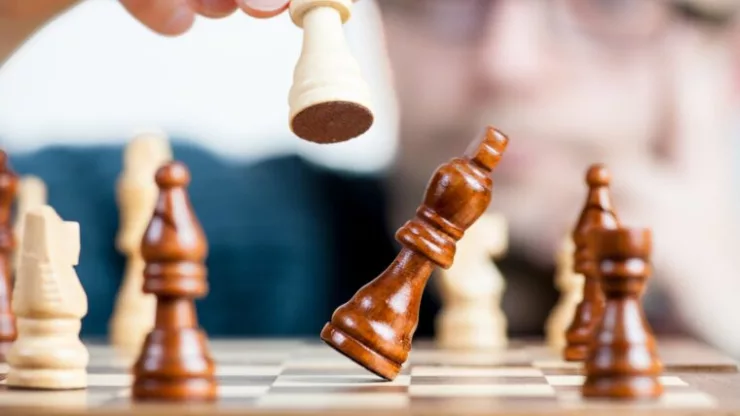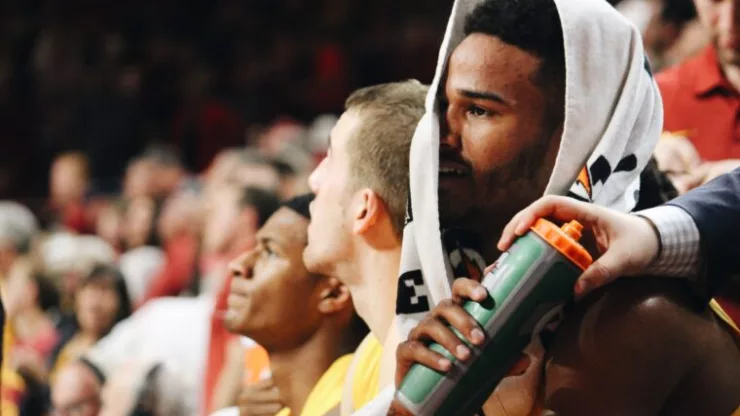In the realm of sports, few activities combine intellectual and physical skill quite like chessboxing. This extraordinary sport offers a thrilling mix of the cerebral strategy of chess and the raw athleticism of boxing.
Competitors must excel in both disciplines to claim victory, making chessboxing a true test of brains and brawn.
In this article, we’ll explore the origins of this unique sport, its rules, and the incredible athletes who rise to the challenge.
Checkmate or Knockout: The Origins of Chessboxing
Chessboxing has its roots in the creative world:
- Artistic inspiration: The sport was initially conceived by Dutch performance artist Iepe Rubingh in 2003, inspired by the French comic book Froid Équateur by Enki Bilal.
- First match: The inaugural chessboxing event took place in Amsterdam, with Rubingh himself participating and emerging as the victor.
- Growing popularity: Since its inception, chessboxing has gained a following, with clubs and events now found across Europe, Asia, and North America.
Strategy and Stamina: The Rules of Chessboxing
The sport of chessboxing is governed by a unique set of rules that blend the two distinct disciplines:
- Alternating rounds: A match consists of 11 rounds, with six rounds of chess and five rounds of boxing. The rounds are interspersed, beginning and ending with chess.
- Time controls: Each chess round lasts three minutes, and competitors have a total of nine minutes on their chess clock. Boxing rounds also last three minutes.
- Victory conditions: A competitor can win by achieving checkmate, scoring a knockout or technical knockout, or by causing their opponent to exceed their chess clock time limit. If neither player meets these conditions, the match is decided by the boxing scorecards or, in the case of a tie, by the player with the black chess pieces.
Brains and Brawn: Notable Chessboxers and Achievements
The world of chessboxing is home to exceptional athletes who excel in both the mental and physical aspects of the sport:
- Iepe Rubingh: As the founder of chessboxing and its first champion, Rubingh played a pivotal role in popularizing the sport and setting its foundational rules.
- Sven Rooch: This German chessboxer holds the title of the first-ever European Chessboxing Champion and is renowned for his impressive chess skills and boxing prowess.
- Tihomir Dovramadjiev: A Bulgarian chess International Master and skilled boxer, Dovramadjiev has claimed multiple chessboxing titles and has been a prominent figure in the sport’s growth.
Conclusion
As a unique and demanding sport, chessboxing tests both the intellect and physical capabilities of its competitors.
The extraordinary athletes who excel in this arena possess not only exceptional chess strategy but also remarkable boxing skills, showcasing their ability to triumph in the ultimate challenge of brains and brawn.
With its growing popularity and dedicated competitors, chessboxing continues to captivate sports enthusiasts and redefine the boundaries of human achievement in the world of sports.
FAQ
Q: What is chessboxing?
A: Chessboxing is a hybrid sport that combines the intellectual challenge of chess with the physical demands of boxing.
Competitors alternate between rounds of chess and boxing, with victory achieved through checkmate, knockout, technical knockout, or by causing their opponent to exceed their chess clock time limit.
Q: How did chessboxing originate?
A: Chessboxing was conceived by Dutch performance artist Iepe Rubingh in 2003, inspired by the French comic book Froid Équateur by Enki Bilal.
The first chessboxing match took place in Amsterdam, with Rubingh participating and winning the event.
Q: How many rounds are there in a chessboxing match?
A: A chessboxing match consists of 11 rounds, with six rounds of chess and five rounds of boxing.
The rounds alternate, beginning and ending with chess.
Q: How do you win a chessboxing match?
A: A competitor can win a chessboxing match by achieving checkmate, scoring a knockout or technical knockout, or by causing their opponent to exceed their chess clock time limit.
If none of these conditions are met, the match is decided by the boxing scorecards or, in the case of a tie, by the player with the black chess pieces.
Q: Are there any notable chessboxers?
A: Some notable chessboxers include Iepe Rubingh, the founder of chessboxing and its first champion; Sven Rooch, the first European Chessboxing Champion; and Tihomir Dovramadjiev, a Bulgarian chess International Master and skilled boxer who has claimed multiple chessboxing titles.

I am a fun fact enthusiast and creator of Facts On Tap.
I love to share my knowledge and curiosity with readers and inspire them to learn something new every day.
When I’m not writing, I enjoy traveling, reading, and playing trivia games with my friends.





